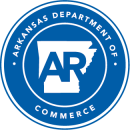Mission
The Arkansas Governor’s Commission on People with Disabilities (AGCPD) was established through Act 911 of 1985 to create a program to promote the interests of Arkansans with disabilities. Commission members are appointed by the Governor with a majority made up of individuals with disabilities. Some of the duties of the AGCPD include advising and assisting the Governor in developing policies that are designed to address the needs of Arkansans with disabilities; working with state agencies and private providers to develop services that support and assist Arkansans with disabilities; and providing information and referral services to Arkansans with disabilities who are in need of assistance. For additional information, you may call 800-330-0632 or 501-296-1637 or email [email protected]
Barriers – What To Do Next
Barriers are obstacles that inhibit, prevent or cause difficulty in equal access to a public or private faculty. The Americans with Disability Act and the Rehabilitation Act of 1973, as amended, prohibit barriers for persons with disabilities. Here are some sample situations and the laws pertaining to the justification to request the removal of such barriers, thus, creating equal access for all to participate.
- You desire to enter a department store and there is not a wheelchair-accessible parking space, then you notice there is not a ramp for a person using a wheelchair to enter. Title III of the Americans with Disabilities Act (ADA) requires that alternations are readily accessible to the maximum extent feasible. An accessible path of travel must be created; the entrance is part of the path of travel. Parking is required not only by federal law but by state laws and many local ordinances. The size of the parking facility will determine how many “handicap parking spaces” are required.
- You are going to a department store at your local outside mall; you have patronized the business for many years. Upon arrival, you realize a new soda machine has been placed on the walkway obstructing the right of passage in your wheelchair. Title III of the ADA requires that an accessible path be established.
- You are at the grocery store and write a check for your items of purchase, the cashier asks for your driver’s license, however, you are blind and offer a state ID, the cashier states store policy requires a valid driver’s license and refuses to accept any other means of identification. This is a violation of the ADA Title III businesses providing “Goods and Services,” a public accommodation may not exclude or segregate individuals with disabilities.
- An individual with Cerebral Palsy is denied service at a new restaurant and in fact, is asked to leave. This is discrimination. Title III mandates a person with a disability can not be excluded from going to certain restaurants.
- A person with Down’s syndrome is only allowed to sit in a particular location at the movie theater. According to Title III, a place of business can not be restricted to seat an individual in a particular location at the place of business, such as a movie theater.
- The local airport has just been renovated and installed several public pay telephones. You are a person who is deaf and attempts to use the phone. However, a telecommunication device (TDD) has not been provided. ADA, Title IV requires one TDD to be provided inside any building that has four or more public pay telephones, this is counting both interior and exterior phones.
- You move into an apartment that is not wheelchair accessible and requires modifications. You need bathroom handrails and the removal of the kitchen cabinet under the sink. When you request to make the modification at your expense the landlord refuses for alterations to be made to the apartment. This attitude and behavior are in direct violation of the Fair Housing Amendments Act (FHAA) which allows the tenant to make such modifications as long as the tenant returns the facility to its originality upon departure.
“An effective advocate is someone who is competent, uses good communication skills and protocol, knows who to talk to and how to talk to them.”
The Americans with Disabilities Act
Title I – Employment: The ADA prohibits discrimination based on disability in employment. Title I prohibits discrimination against qualified individuals with disabilities in private and state and local government employment settings and includes special features related to reasonable accommodations, qualification standards, and other labor-management issues. To file an ADA Title I complaint, contact the Equal Employment Opportunity Commission.
Title II – Public Services: The ADA requires all services and activities of State and Local Governments to be accessible to persons with disabilities. Title II covers such things as a county courthouse or State office buildings, it also includes public transportation provided by public entities. Access issues should be addressed to the Department of Justice and transportation issues with the US Department of Transportation.
Title III – Public Accommodations And Services Operated By Private Entities: The ADA prohibits discrimination by privately operated establishments that are used by the general public. For example banks, restaurants, parks, retail stores, as well as transportation facilities, and vehicles operated by private entities. Complaints should be filed with the Department of Justice if you are unable to resolve the matter at hand first on a local level.
Title IV – Telecommunications Relay Services: All common carriers that offer telephone services to the general public MUST provide interstate or intrastate relay services that are functionally equivalent to the service that a person with a hearing impairment receives, this includes cell phone technology. The area of contact is the Federal Communications Commission
Title V – Miscellaneous Provisions: Protects individuals with disabilities, and persons who are associated with persons with disabilities from retaliation when exercising their rights under the ADA. A person with a disability who is qualified cannot be forced to accept an accommodation. This provision is handled by the Department of Justice, Civil Rights Division. The Rehabilitation Act Of 1973, section 504, prohibits discrimination based on a person’s disability in federal employment, federally funded programs and services, and by federal contractors.
A federal or federally funded building or facility, such as a federal courthouse or a U.S. post office, is governed by the Architectural Barriers Act.
Housing issues are protected by the Fair Housing Act. All complaints are handled by the local office of HUD. Air travel or air carrier concerns should be addressed to the Aviation Consumer Protection Division.
Links & Contact Information
Arkansas Governor’s Commission on People with Disabilities
Phone: 1-501-296-1637 V
Phone: 1-800-330-0632 TDD1
Email: [email protected]
Arkansas Vocational Rehabilitation Services
Phone: 1-501-296-1600 V/TDD
Arkansas State Independent Living Council
Phone: 1-800-772-0607 V/TDD
Disability Rights Arkansas
Phone: 1-501-296-1775 V/TDD
U.S. Department of Justice, Civil Rights Division, Disability Right Section
Phone: 1-800-514-0301 V1
Phone: 1-800-514-0383 TDD
American Association of People with Disabilities
Federal Agency Committed to Accessible Design &
U.S. Architectural and Transportation Barriers Compliance Board
Phone: 1-800-872-2253 V
Phone: 1-800-993-2822 TDD
National Council on Independent Living
National Disability Rights Network – Protection and Advocacy Resource
National Organization on Disability
National MS Society
U.S. Department of Health and Human Services – Office of Civil Rights
U.S. Department of Labor – Office of Disability Employment Policy
Phone: 1-866-633-7365 V1
Phone: 1-877-889-5627 TDD
Job Accommodation Network (JAN)
Phone: 1-800-526-7234
Equal Employment Opportunity Commission
Americans with Disabilities Act Information and Technical Assistance
Phone: 1-800-514-0301 V1
Phone: 1-800-514-0383 TDD
Aviation Consumer Protection Division
Phone: 1-866-266-1368 V
Phone: 1-866-754-4368 TDD
Federal Communications Commission
Phone: 1-202-418-2498
Email: [email protected]



